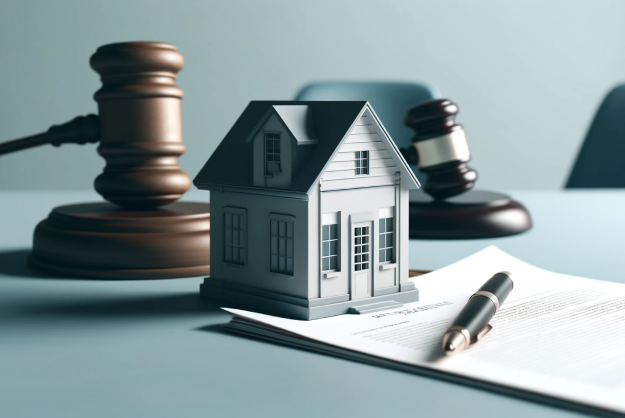
Plaintiff-side lawsuits against landlords are on a dramatic rise in popularity. One of the most common causes of action is a violation of Civil Code 1942.4.
It restricts the landlord’s ability to collect rent in certain situations. Tenants facing eviction can also use 1942.4 as an affirmative defense.
Here we explain what it means to be served with a lawsuit citing a violation of section 1942.4.
Understanding Civil Code 1942.4
The code restricts the landlord’s ability to collect rent, raise the rent, or give a 3-day pay or quit to a tenant if:
- If the property is in sub-standard condition under Section 17920.3 of the Health and Safety Code.
- Lacks the standards set in Section 1941.1 of the California Civil Code.
- If a city official notified the landlord in writing of the violation and demanded repair.
- The condition was not repaired in 35 days, and
- The condition is not the tenant’s fault.
If a landlord is found liable for a 1942.4 violation in a lawsuit, they can face payment for:
- Actual damages
- Special damages
- Costs of legal action
- Attorney’s fees
- Rent abatement
- Costs to repair the unit
The possible consequences for a violation under this section are severe. Attorney’s fees in particular, can turn small cases into large ones.
What is a Sub-Standard Condition under Section 17920.3 of the Health and Safety Code?
The California Health and Safety Code provides a long list of conditions that render a unit ‘sub-standard and can be found here. Here are some, but not all of the conditions:
- Bad sanitation
- No bathtub, kitchen sink, or shower in the unit
- No hot water
- No heating in the unit
- Lack of proper ventilation
- No lighting
- Infestation of insects, mold
- Structural Hazards
- Bad foundation, deteriorated flooring
- Bad walls that are not structurally sound or able to carry the building’s weight
- Bad wiring or exposed wiring
- Bad plumbing
If the unit has any of the above issues and you don’t take immediate steps to repair them, you can face a lawsuit based on 1942.4.
What are the sub-standard conditions described in section 1941.1?
The living standards described in California Civil Code 1941.1 are similar to California Health and Safety Code 17920. They include:
- Effective waterproofing of the unit
- Plumbing that is up to city code
- Hot and cold water
- Heating for the unit to keep the apartment warm
- Electric lighting
- Clean and sanitary building areas
- Trash bins
- Floor, stairs, and railing in good condition
- Ability to lock the unit’s doors
How California Civil Code 1942.4 is Used Offensively Against Landlords
This Civil code provision is popular not only in plaintiff-side lawsuits against landlords to collect money. Eviction defense firms also use 1942.4 as a defense to an eviction. The dual use of the statute can turn an eviction battle into a lawsuit for damages. The added layer of possible statutory damages under 1942.4 and attorney’s fees only elevates the risk for the landlord.
Best Practices for Landlord to Avoid 1942.4 Violations
The best way to avoid a lawsuit based on Civil Code 1942.4 is to make sure it does not happen in the first place. The basics of this cause of action is failure to repair by the landlord. The liability that applies to landlords under CA 1942.4 is imposed when the property owner fails to take action for specific conditions. Best practices for landlords to avoid violations of 1942.4:
- Inspections to discover possible conditions in the property that can give rise to a 1942.4 violations
- Immediately respond to the tenant’s request to repair any condition that is enumerated in 1942.4
- Document every communication with a tenant and vendor about the repairs in the building
How to Respond to a Lawsuit for Violation of Civil Code 1942.4?
If you were served with a lawsuit from a tenant under 1942.4, you will be required to respond within 30 days after service. If you don’t respond in 30 days you may be facing a default judgement. The best way to answer a lawsuit of this kind is to hire a real estate lawyer. An aggressive attorney will be able to review the evidence and provide you with an assessment of potential exposure and the correct legal strategy.
The ability to collect attorney’s fees raises the stakes for property owners. Even small violations can turn into large judgments for the tenants. If a current or former tenant sued you for violating 1942.4, contact Sinai Law for a free same-day consultation.
